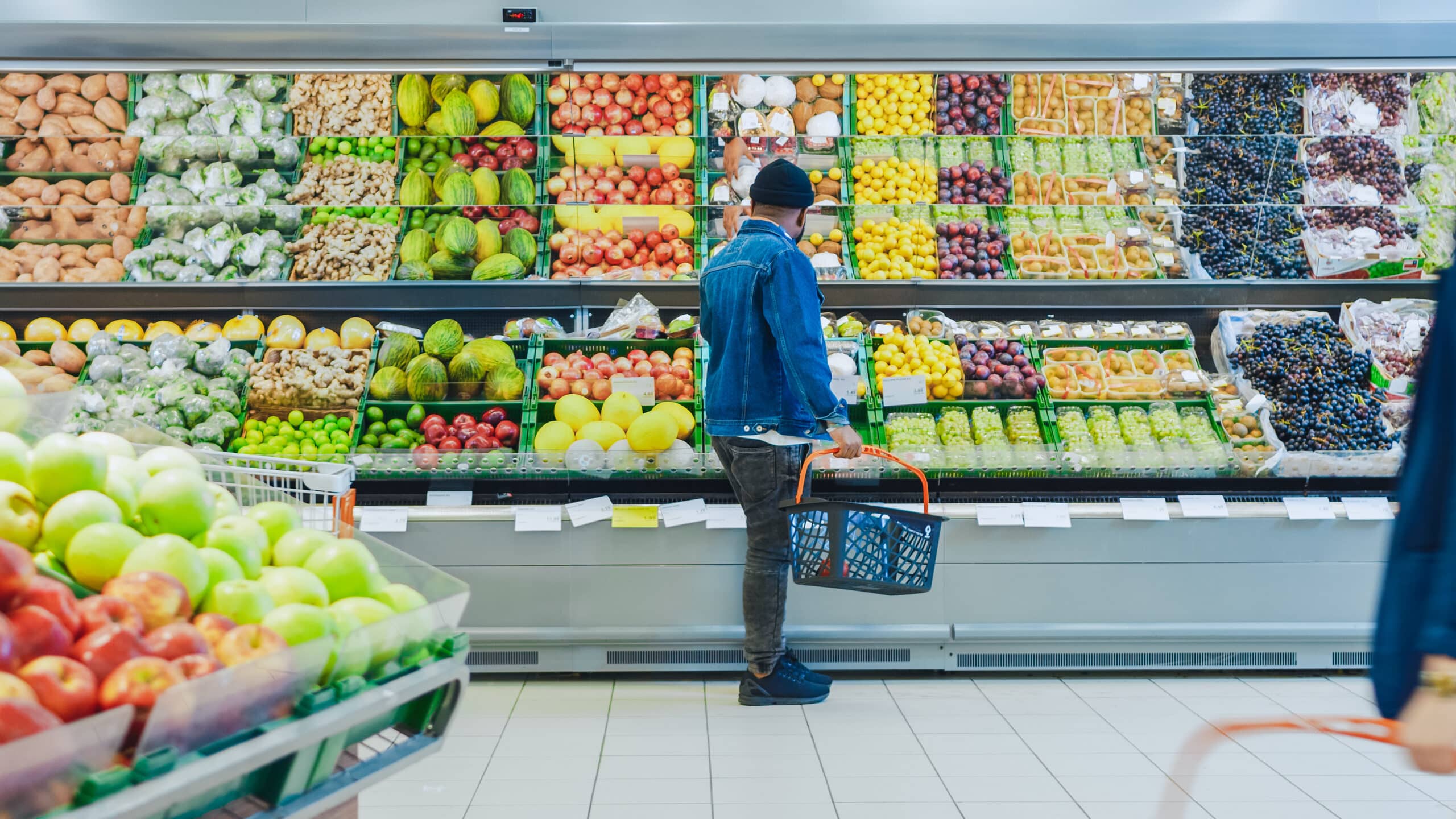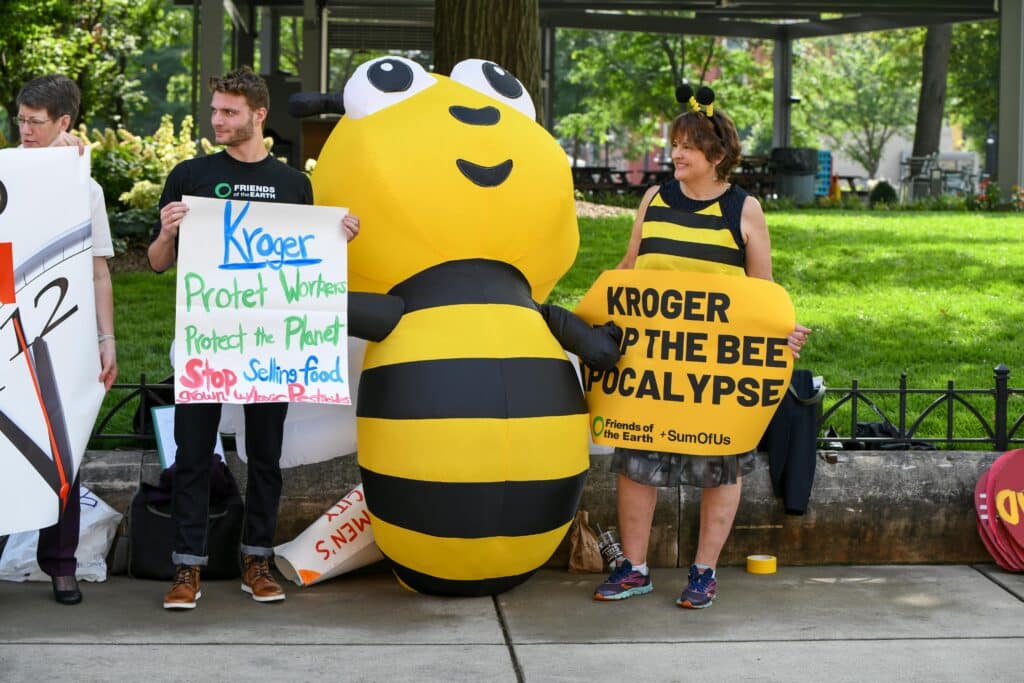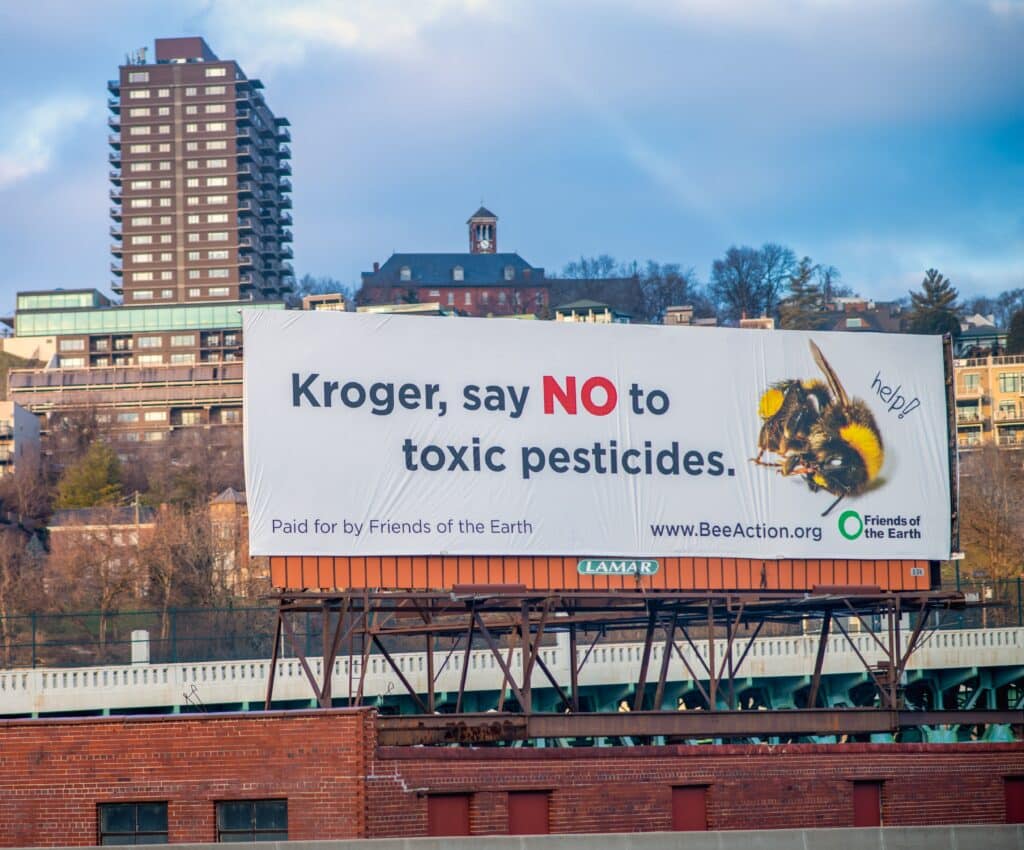- Home
- Food & Agriculture
- Bee Action
- Protecting Our Food System
Protecting Our Food System

There’s no denying how vital bees and other pollinators are to our planet. Bees, butterflies, and other small critters pollinate much of the world’s crops. Without their pollination services, we would be missing 1 out of 3 of every bite of food we eat.
However, despite how important these insects are, their existence is threatened. 40% of insect species are at risk of extinction within the next few decades, posing a significant threat to the delicate balance of ecosystems. Scientists fear that this decline could lead to a “catastrophic ecosystem collapse,” impacting not only agricultural production but also the overall health of the planet.
One of the primary contributors to the decline of insect populations, including pollinators, is the widespread use of neonicotinoids, also known as neonics, in agriculture. Since neonic pesticides were first commercialized in the 1990s, American agriculture has become 48 times more toxic to insect life. This surge in toxicity has had a devastating impact on pollinators. U.S. beekeepers reported losing over 48% of their colonies in 2023 alone. And many wild bee species are on the verge of disappearing.
Insects aren’t the only ones hurting from the use of neonics. Studies show that neonics are associated with malformations of babies’ developing hearts and brains, among other serious health concerns. Farmworkers and children in rural communities are on the frontlines of exposure to harmful pesticides like neonics.
So in our fight to protect pollinators, people, and the planet, we knew we had to fight the use of dangerous neonics. To do that, Friends of the Earth began targeting lawmakers to influence policy change. And our advocacy was met with a major win in New York state, where the Birds and Bees Protection Act was passed! TheAct is a first-of-its-kind piece of legislation that serves as an example to other states and the EPA to take a stand against the poisonous pesticide industry.
In addition to working to influence lawmakers, we’ve devoted years to shifting the food industry towards more bee-friendly practices. Since 2018, Friends of the Earth has been benchmarking 25 of the largest U.S. grocery stores on their pesticide-related policies and their efforts to expand organic agriculture. We are encouraged to find that retailers are motivated to land at the top of our Bee-Friendly Retailer Scorecard. In fact, since the scorecard’s inception, 13 food retailers have created policies addressing pesticides!
One of our biggest campaign targets has been Kroger, the country’s largest traditional grocery chain, controlling $137.9 billion in food and beverage sales and operating with more than 2,700 stores nationwide. In 2019, Kroger took a first step and established a pollinator health policy. However, the policy didn’t set any measurable targets to reduce pesticides or expand organic and other ecological farming methods in Kroger’s supply chain. Frankly, Kroger’s policy fell short, and that was reflected in our 2023 Bee-Friendly Retailer Scorecard, where Kroger scored a D-. We knew we had to continue demanding better from them. We attended Kroger’s shareholder meetings, held protests, rallied our members, and even put up a billboard outside the headquarters to call attention to their failings.
Since Friends of Earth members have a special love for our bees, it wasn’t difficult to call on them to get involved. Almost 100,000 members signed petitions demanding that Kroger reduce the use of toxic pesticides in its supply chains. Our members weren’t alone in their belief that retailers need to step up to protect the bees. An independent survey found that 83% of Americans believe it is important to eliminate pesticides that are harmful to pollinators and people from agriculture.
In January 2024, Kroger announced actions aimed at reducing the use of toxic pesticides in its fresh fruit and vegetable supply chains! This was a huge win in our work to protect pollinators, soil health, and communities across the country.
Although this win was critical in our fight, there is still work to be done. Use of toxic pesticides is rising in the U.S. and around the world. And although organic agriculture continues to grow, organic food sales represent just 5.5% of the U.S. market.The four largest food retailers — Walmart, Amazon, Costco, and Kroger — control over $1.02 trillion annually in food and beverage sales. If they all committed to shifting their supply chains to bee-friendly agriculture, the impact would be groundbreaking! Because, after all, organic farming promotes healthier soil, water conservation, resilience to droughts and floods, and the reduction of greenhouse gas emissions. In short, a shift to organics is a critical approach to protecting biodiversity, addressing climate change, and safeguarding human health.


